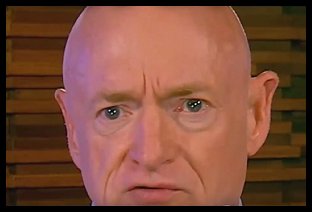Special to The BRAD BLOG by Michael Bryan, Esq. from the courtroom in Tucson, AZ..

The final day of testimony over the Pima County Democratic Party's public records request featured the remainder of the county's witnesses for the defense, a surprise call on an adverse witness, and pugnacious closing arguments. The matter now rests with Judge Michael Miller, who says he will decide the case within the next two weeks.
To get up to speed with details on what this trial is about, please see my introductory post. If you haven't been following along, you may want to take a look at my summaries of the first day, the second day, and the third day of trial.
In brief, the Pima County (Tucson) Democratic Party is demanding Pima County release the Diebold GEMS tabulator databases containing voting data from the 2006 election, and those from all future elections, arguing that they are public records. The GEMS software is highly insecure, allowing anyone with access to the computer it runs on to manipulate the outcome of elections at will and likely cover their tracks. Elections are thus highly succeptable to manipulation by elections insiders, and there is no way to detect or deter them without access to the databases for forensic analysis. Pima County's position is that we should trust them to take care of that risk through internal checks and balances, and that releasing the databases simply creates more security risks by outsiders seeking to hack an election.
The county's expert witnesses were Merle "the Man from Diebold" King, and Dr. John Moffatt, a consultant for Pima County's IT strategy. Summaries of and commentaries on their testimony is available on BlogForArizona.com, along with an detailed chronicle of the entire trial.
Both experts sought to convince the judge of the many security threats posed by release of the GEMS databases, and in my view, failed to sustain that position under the cross examination of the Democrats' attorney Bill Risner. Risner poked holes in all the threat scenarios the experts presented, showing them to be impracticable, absurd, or simply undefined.
Here's Risner's closing argument:
At the heart of the case is the balance between the public interest served by the records' release (oversight and deterrence of election fraud) and the government's legitimate interest in confidentiality (security of election data). Pima County has the burden of persuasion in this case, so if the judge isn't convinced that the county's concerns persuasively outweigh the public interest, he will release the records.
There are some salacious charges made against elections officials in this case (rigging elections, improper handing of data, even office romance) that have often blotted out the larger issues in the traditional media. But this case is not about one election, nor the actions of the elections officials in one county. This trial has established that every county running Diebold's GEMS software likely has very serious security problems that make their elections highly vulnerable to manipulation by vendors, contractors, and elections employees and insiders.
13 of the 15 counties in Arizona use GEMS; and hundreds of other counties and jurisdictions around the country also do so. Millions of American votes are therefore wide open to manipulation by insiders unless the kind of oversight that is sought in Pima County is established in those jurisdictions as well. And all equivalent certified software has its own major security flaws. The counting of our votes by computer has become a security bottle-neck through which almost every vote in the country must pass, and which is wide open to insider manipulation. That is a fact that should concern every single American, and it's why this trial is so important.
It is a massive indictment of the current certification system that this fundamentally flawed software was ever approved for use in our elections. The JET database engine that GEMS shares with MS Access is completely unsuitable for the task of counting our votes. JET is not a transactional database, so it's auditablity and error-handling is risible. It is deprecated by Microsoft for high-volume, multi-user, high-assurance applications (which are exactly the tasks elections departments utilize it for) and thus is prone to data loss and data corruption that can also result in voter disenfranchisement.
If the certification process cannot guarantee suitability of the software for the intended electoral task, let alone fundamental security, what good is the process?
The central theme of Democrats' attorney Bill Risner throughout the trial was that the elections belong to the people, not the government. The people's political parties have a legitimate role to play in assuring the integrity of our elections, and it is not appropriate for the government to rely on security through obscurity to protect our elections. Americans want and deserve real security, based on transparency and good design. We don't want dirty little corporate secrets to be the only thing standing between our votes and those who would subvert our democratic process.
As soon as we have the closing argument videos online, I will post footage here. The style and substance of the opposing parties on display in these closings speaks volumes about the contending philosophies that are clashing in this trial. Sparks flew, and the rhetoric was strong. The judge asked the parties to put aside the legalistic arguments and focus on persuasion. The plaintiff's attorney did so; the county seemed unable to rise to the occasion. The simple fact is that it is not really possible to wax eloquent about keeping dirty laundry for Diebold in the closet, so I wasn't really surprised.
That's it for my coverage of this landmark trial in the fight for election integrity and transparency. For now. I will update this post when we have closing argument footage online. And I will re-visit this story once again when Judge Miller issues his ruling within the next two weeks, and, as both parties are expected to appeal an adverse ruling, when the issues in any appeal are clarified.
I encourage all the election integrity activists out there to make concerted efforts to find out what the security situation is with the tabulators in your own jurisdiction. Thanks for tuning in, and many thanks to Brad for seeking me out to help keep his readers in the loop on this trial.


 With Thanks, No Kings and Good Cheer
With Thanks, No Kings and Good Cheer Presidential Illegality and the Duty to Disobey
Presidential Illegality and the Duty to Disobey Sunday 'Leave 'em in Stitches' Toons
Sunday 'Leave 'em in Stitches' Toons President of United States Calls for Killing Democratic Officials: 'BradCast' 11/20/25
President of United States Calls for Killing Democratic Officials: 'BradCast' 11/20/25 'Green News Report' 11/20/25
'Green News Report' 11/20/25
 Is MAGA Finally Beginning to Fall Apart?: 'BradCast' 11/19/25
Is MAGA Finally Beginning to Fall Apart?: 'BradCast' 11/19/25 Trump's Terrible, Horrible,
Trump's Terrible, Horrible, 'Green News Report' 11/18/25
'Green News Report' 11/18/25 A Kaleidoscope of Trump Corruption: 'BradCast' 11/17/25
A Kaleidoscope of Trump Corruption: 'BradCast' 11/17/25  Sunday 'Back to Business' Toons
Sunday 'Back to Business' Toons Trump DOJ Takes Stand
Trump DOJ Takes Stand 'Green News Report' 11/13/25
'Green News Report' 11/13/25 Mamdani's 'Surprisingly Affordable' Afford-ability Agenda for NYC: 'BradCast' 11/12
Mamdani's 'Surprisingly Affordable' Afford-ability Agenda for NYC: 'BradCast' 11/12 After the Shutdown and Before the Next One: 'BradCast' 11/11/25
After the Shutdown and Before the Next One: 'BradCast' 11/11/25 'Green News Report' 11/11/25
'Green News Report' 11/11/25 Victories for Democracy in Election 2025; Also: 7 Dems, 1 Indie Vote to End Shutdown in Senate: 'BradCast' 11/10/25
Victories for Democracy in Election 2025; Also: 7 Dems, 1 Indie Vote to End Shutdown in Senate: 'BradCast' 11/10/25 Sunday 'Ass Kicking' Toons
Sunday 'Ass Kicking' Toons 'We Can See Light at the End of the Tunnel' After Election 2025: 'BradCast' 11/6/25
'We Can See Light at the End of the Tunnel' After Election 2025: 'BradCast' 11/6/25 'Green News Report' 11/6/25
'Green News Report' 11/6/25 BLUE WAVE! Dems Win Everything Everywhere All at Once: 'BradCast' 11/5/25
BLUE WAVE! Dems Win Everything Everywhere All at Once: 'BradCast' 11/5/25 Repub Thuggery As Americans Vote: 'BradCast' 11/4/25
Repub Thuggery As Americans Vote: 'BradCast' 11/4/25 Last Call(s) Before Election Day 2025: 'BradCast' 11/3/25
Last Call(s) Before Election Day 2025: 'BradCast' 11/3/25 A Pretty Weak 'Strongman': 'BradCast' 10/30/25
A Pretty Weak 'Strongman': 'BradCast' 10/30/25 Proposal for 'Politically Viable Wealth Tax' Takes Shape in CA: 'BradCast' 10/29
Proposal for 'Politically Viable Wealth Tax' Takes Shape in CA: 'BradCast' 10/29 Monster Storm, Endless Wars, Gamed Elections: 'BradCast' 10/28/25
Monster Storm, Endless Wars, Gamed Elections: 'BradCast' 10/28/25 Let's Play 'Who Wants to Be a U.S. Citizen?'!: 'BradCast' 10/27/25
Let's Play 'Who Wants to Be a U.S. Citizen?'!: 'BradCast' 10/27/25 Exiled NOAA Scientists Resurrect Critical Disaster Database: 'BradCast' 10/23/25
Exiled NOAA Scientists Resurrect Critical Disaster Database: 'BradCast' 10/23/25
 VA GOP VOTER REG FRAUDSTER OFF HOOK
VA GOP VOTER REG FRAUDSTER OFF HOOK Criminal GOP Voter Registration Fraud Probe Expanding in VA
Criminal GOP Voter Registration Fraud Probe Expanding in VA DOJ PROBE SOUGHT AFTER VA ARREST
DOJ PROBE SOUGHT AFTER VA ARREST Arrest in VA: GOP Voter Reg Scandal Widens
Arrest in VA: GOP Voter Reg Scandal Widens ALL TOGETHER: ROVE, SPROUL, KOCHS, RNC
ALL TOGETHER: ROVE, SPROUL, KOCHS, RNC LATimes: RNC's 'Fired' Sproul Working for Repubs in 'as Many as 30 States'
LATimes: RNC's 'Fired' Sproul Working for Repubs in 'as Many as 30 States' 'Fired' Sproul Group 'Cloned', Still Working for Republicans in At Least 10 States
'Fired' Sproul Group 'Cloned', Still Working for Republicans in At Least 10 States FINALLY: FOX ON GOP REG FRAUD SCANDAL
FINALLY: FOX ON GOP REG FRAUD SCANDAL COLORADO FOLLOWS FLORIDA WITH GOP CRIMINAL INVESTIGATION
COLORADO FOLLOWS FLORIDA WITH GOP CRIMINAL INVESTIGATION CRIMINAL PROBE LAUNCHED INTO GOP VOTER REGISTRATION FRAUD SCANDAL IN FL
CRIMINAL PROBE LAUNCHED INTO GOP VOTER REGISTRATION FRAUD SCANDAL IN FL Brad Breaks PA Photo ID & GOP Registration Fraud Scandal News on Hartmann TV
Brad Breaks PA Photo ID & GOP Registration Fraud Scandal News on Hartmann TV  CAUGHT ON TAPE: COORDINATED NATIONWIDE GOP VOTER REG SCAM
CAUGHT ON TAPE: COORDINATED NATIONWIDE GOP VOTER REG SCAM CRIMINAL ELECTION FRAUD COMPLAINT FILED AGAINST GOP 'FRAUD' FIRM
CRIMINAL ELECTION FRAUD COMPLAINT FILED AGAINST GOP 'FRAUD' FIRM RICK SCOTT GETS ROLLED IN GOP REGISTRATION FRAUD SCANDAL
RICK SCOTT GETS ROLLED IN GOP REGISTRATION FRAUD SCANDAL VIDEO: Brad Breaks GOP Reg Fraud Scandal on Hartmann TV
VIDEO: Brad Breaks GOP Reg Fraud Scandal on Hartmann TV RNC FIRES NATIONAL VOTER REGISTRATION FIRM FOR FRAUD
RNC FIRES NATIONAL VOTER REGISTRATION FIRM FOR FRAUD EXCLUSIVE: Intvw w/ FL Official Who First Discovered GOP Reg Fraud
EXCLUSIVE: Intvw w/ FL Official Who First Discovered GOP Reg Fraud GOP REGISTRATION FRAUD FOUND IN FL
GOP REGISTRATION FRAUD FOUND IN FL


































